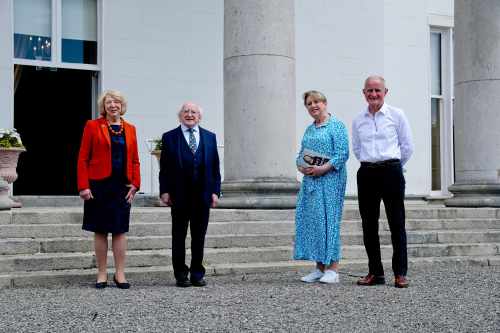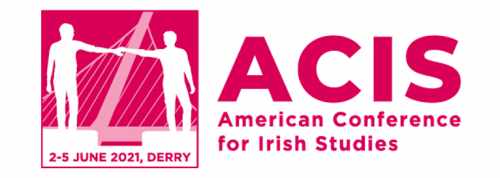Speech at the Young Philosopher Awards 2021
3 June 2021
May I say what a great pleasure it is to have received this opportunity to take part in the fourth annual Young Philosophers’ Awards. Sabina and I are so glad that this project, with whose beginning we were associated, is not only flourishing but extending.
Since their inception, these awards have impressively demonstrated the wealth of creativity and the great willingness to question and explore the status quo that exists amongst our young people when given the opportunity. This year is no exception, and I thank and commend all those who have submitted their thoughts and ideas, producing work that is thought-provoking and reflective, asking important and fundamental questions about the way we live and the core values that define our society today. The projects have been impressive in their originality and their breadth and commitment to use the full range of philosophical thought and practice.
Indeed, I understand that 500 students have submitted, between them, 200 projects, and I was greatly impressed by the range of themes covered and the many most basic, enduring, challenging and creative questions posed by the young entrants. Issues examined and reflected upon include contemporary issues such as how to create a sense of belonging in our society; in what ways can we work together to combat intolerance and to protect our environment; how can we use technology ethically, while remaining responsible and respectful of the rights of others; and, of course, what shape and form will our society take in a post-Covid world. However, and it is so important, the Classical issues of philosophy are also there.
I am delighted that this year also sees the inauguration of the International Young Philosopher Award, extending the reach of this important event beyond our shores. Participants from Germany, Mexico, the Netherlands, Romania, Russia, Turkey and the United Kingdom have responded to the invitation, submitting work that is imaginative, thoughtful and demonstrates a real will to make a contribution to their understanding, which will help make possible a reflective, pluralist base for policy and practice in their communities and their society.
The theme of this year’s international award is ‘solidarity’, a principle that must lie at the heart of any aspiration towards global citizenship in a world of peace and multilateral responsibility. Again, the questions posed are imaginative, curious, and show a profound awareness of the public discussion, concern on so many issues and the need for solidarity on the measures we must take, together, if we are to advance in our efforts to solve some of the world’s most urgent problems.
We are currently, here in Ireland, across the globe, living through an unprecedented time. It has been a time during which the spirit of solidarity has been invoked, indeed has been so critical in enabling us to meet the challenge of the Coronavirus pandemic. In countries around the world, we have heard of citizens who have made extraordinary sacrifices for the greater good, placing themselves in the vulnerability of others, and working collectively to protect those who are most susceptible and at risk. That spirit has provided a most inspiring light, guiding us through the darkest of days as we navigate our way towards the better future that we must make together.
As with all moments of crisis, the Coronavirus pandemic has presented us with some opportunities as well as its devastating problems. It will be of benefit, in a strange way, if it turns out to be a catalyst in prompting the fundamental questions we must now ask as to how we live our lives, and the core values on which we wish those lives to be based.
Here in Ireland, we have been impelled to question the way we work, the kinds of work we value, the structure of the communities in which we reside together, the priorities on which our decision-making processes are based, and what we can, indeed must, do to change if we are to craft a better, shared future.
We might, with benefit, ask ourselves, however, why it has taken a crisis of such magnitude to prompt reflection on the assumptions by which we have lived, the absence of critique of inadequate institutional arrangements, and the reluctance to ask those fundamental questions that are so critical to the ethical evolution of any society.
Why are we only now, for instance, questioning the nature of work in our society, work as human expression, work as functional necessity, work as means of survival, the relevance of traditional working models in a technological age and, so importantly, the impoverishment of family and community life that occurs when the economic interests of the workplace are prioritised ahead of the welfare of those employed within it.
Why is such scrutiny and appraisal not a permanent and ongoing feature of our shared lives, as we aspire to not only create, but maintain and ensure the flourishing of societies that are ethical in their structure and generous in their accommodation of the needs and diversity of all their citizens? The locking of such questions into separate silos has left us without visionary, or indeed ethical, options in some instances.
Aristotle, as many of you will know, has stated that philosophy begins with wonder. Philosophy, in other words, is rooted in our human disposition to ask questions. If we lose or neglect that capacity to question, to critically evaluate, we can all too easily drift down a precarious road leading to a society where citizens become passive observers rather than active shapers of its evolving structure and form.
That is why the study of philosophy is so greatly important, as is the facilitating of structures where philosophers do not debate primarily with each other, but extend those discussions beyond the academic sphere and out into society, partaking in the decision-making processes that shape that society.
What price, we might ask, have we paid for removing a philosophical context from theoretical work – be it in economics, the history of science, the application, access and consequences of technology? We are sleep-walking. That is where the Young Philosophers become our hope.
Those with philosophical training can have, and must have, the courage to assume a critical role to play in our workplaces, our communities, our policy and regulatory institutions, and in all areas of our shared existence, bringing the right questions to the table, the difficult and often awkward questions to which there is sometimes no single correct answer.
Philosophy, when broadly taught, in terms of theory, method, and discourse, can teach us to debate with wisdom and respect, to understand alternative viewpoints and, may I say, to realise that the replacing of old forms of intolerance with new ones does not in any way signify the creation of a progressive or more open, broadminded or democratic society.
Your generation will be central to the crafting of a post-Covid world. What will be the role of universities, of free thoughts, in that world? How important your role is and will be. That is a great responsibility, but also a great opportunity for young, engaged citizens, equipped with the intellectual tools to address the great challenges of our time, and not only unafraid to question what many have perceived to be unchangeable inevitabilities, but to offer the alternatives, informed by this year’s chosen great theme – solidarity.
As we envisage the societies that might emerge from the Covid crisis, and begin to lay their foundation stones, it is critical that we do so in a spirit of that solidarity, our minds focused on the importance of collective responsibility. We must recognise the role of the entrepreneurial state with new forms of social protection implementing all of the measures, for example, in the Social Pillar of the European Union, in creating just societies and sustainable economies, and the importance of a welfare state as a support to citizens, not merely in times of need, but as citizens with a right to flourish.
To all of you, may I offer my thanks. The reflective and imaginative work you have submitted for this award marks you out as young people who not only understand, but aspire towards an authentic version of citizenship and one beyond borders. It is my great hope that you will continue to reflect on what is required if we are to live in a democratic, shared space, how nurturing the spirit of philosophical enquiry is so essential for that, and how that has brought you here today. May you, with joy, grow in awareness of self and others as you develop all those ideas and concepts that can bring about the real transformation from which all now, and in the future, can benefit.
Beir beannacht d’on todchaí is mile buíochas.


